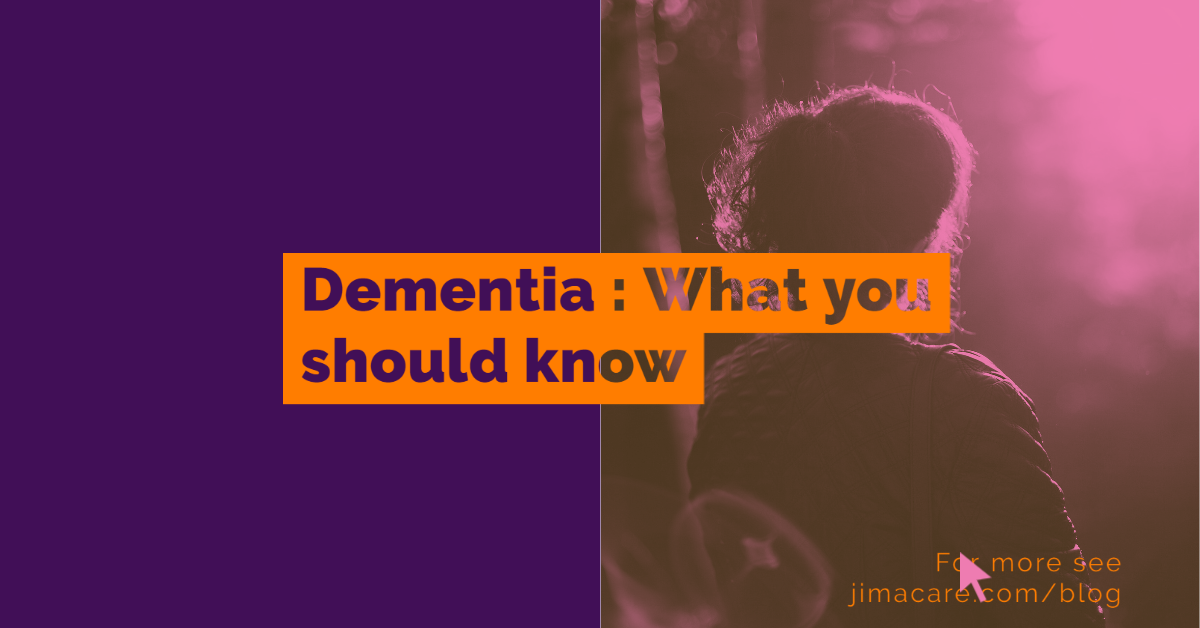Dementia is a chronic or persistent disorder of the mental processes as a result of brain disease or injury andvitz characterized by memory disorders, impaired reasoning and personal changes. It's not a specific disease but rather, it's a general term for the declining cognitive abilities to remember, think or make decisions that interfere with carrying out everyday tasks. However, it's important to note that though it affects older adults mostly, yet it's not part of normal aging. Aging in most cases causes some physical effects such as stiffening of arteries and vessels, weakening muscles and bones, age-related memory changes which may include but not limited to forgetting the name of an acquaintance, forgetting the most recent events, occasional misplacing car-keys, struggling to find a word but remembering it later, etc. Thus, not all old people are at the risks of the aforementioned challenges. According to a survey carried out in 2014, it was estimated that about 5.0million adults of 65yrs and above were living with dementia. It's however projected that nearly 14.0million people are likely to have it by year 2060, globally. In most cases, knowledge and experience built over the years, old memories and language spoken would stay intact.
Here are some of the factors that increase the risks of dementia; age, family history, poor heart health, traumatic brain injury , race/ethnicity. It's also established that older African Americans are twice more likely to have dementia than whites, Hispanics 1.5times more likely to have it than whites.
DIAGNOSIS
Dementia can be diagnosed by healthcare providers by performing tests on attention, memory, problem solving and other cognitive abilities to see if there's cause for concern. A physical examination, blood tests and brain scans like CT or MRI can help determine an underlying cause.
Hence, here are the commonest types of dementia;
- Alzheimer's Disease:
This accounts for 60-80 per cent of cases. It's caused by specific changes in the brain. Its trademark symptom is trouble remembering recent events such as conversation that occured minutes or hours ago while difficulty in remembering more distant memories occurs late in the disease. Difficulty with walking or talking or personality changes occurs later. Family history is the most important factor. Having a first degree relative with Alzheimer's Disease increases developing it by 10-30 per cent.
- Vascular Dementia:
About 10 per cent of dementia cases are linked to strokes or other issues with blood flow to the brain. Diabetes, high BP, and high cholesterol are allso risk factors. Symptoms vary depending on the area and size of the brain impacted. In this case, the disease progresses in a stepwise fashion ass symptoms get worse when the individual gets more strokes or mini-strokes.
- Lewis Body Dementia:
In addition to more typical symptoms like loss of memory, people with this form of dementia may have movement or balance problems like stiffening or trembling. Many people also experience changes in alertness including daytime sleepiness, confusion or staring spells. They may also suffer visual hallucinations (seeing imaginary things).
- Fronto-temporal Dementia:
This type of dementia leads to changes in personality and behaviour because of the part of the brain it affects. People with this condition my embarrass themselves or behave inappropriately. There may also be problem with language skills like speaking or understanding.
- Mixed Dementia:
Sometimes more than one type of dementia is present in the brain at the same time, especially people aged 80 or older. For example, a person may have Alzheimer's Disease and Vascular Dementia.
REVERSIBLE CAUSES
People who have dementia may have a reversible underlying cause such as side effects of medication, increased pressure in the brain, vitamins deficiency and thyroid hormone imbalance.
TREATMENT
Treatment of dementia depends on the underlying cause. Neurodegenerative dementia like Alzheimer's Disease have no cure though there are medications that can help protect the brain or manage symptoms such as anxiety or behavioural changes. Research to develop more treatment options is ongoing. Leading a healthy lifestyle including regular exercise, healthy eating and maintaining social contacts decreases chances of developing chronic diseases and my reduce number of people with dementia.
In conclusion, if your loved ones is suspiciously having dementia, here's what you can do. Discuss with him/her on the need to visit a Health professional.
Ref:
Alzheimer's Disease and Healthy Aging Programme Home

